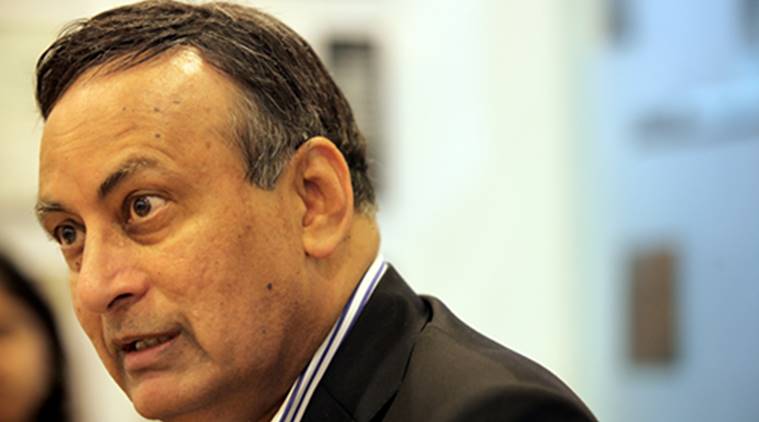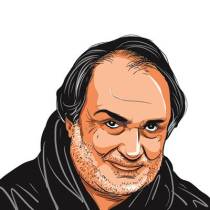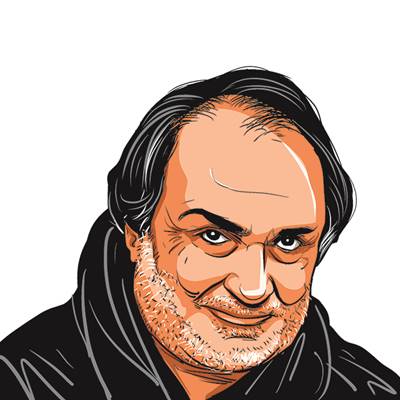The Pakistan Paradox
Pakistan’s persona non grata, ex-ambassador to the US, Husain Haqqani, in his book Reimagining Pakistan: Transforming a dysfunctional state, lists the reasons why Pakistan today finds itself swamped with crises it can’t resolve.

Haqqani finds fault with the early self-image of Pakistan as an ideological state embracing religion without knowing its possible teleology.
Pakistan’s persona non grata, ex-ambassador to the US, Husain Haqqani, in his book Reimagining Pakistan: Transforming a dysfunctional state, lists the reasons why Pakistan today finds itself swamped with crises it can’t resolve. Nothing he says can be challenged but he will be blamed for demonising the country that had done so much for him. As a victim of Pakistan’s perennial political instability, his voice should be heard and his diagnosis of the steadily failing state taken seriously.Haqqani finds fault with the early self-image of Pakistan as an ideological state embracing religion without knowing its possible teleology: “Pakistan, which has 188 public or private universities, compares unfavourably with countries in geographic proximity. While only four of those was ranked among the top 1,000 universities in the Times Higher Education World University rankings in 2017, the list included thirty institutions from India, sixty from China, fourteen from Iran, sixteen from Turkey, five from Saudi Arabia, eight from Malaysia, seventy-one from Japan, twenty-seven from South Korea, twenty from Taiwan and six from Hong Kong.”
Yet one wonders if homo pakistanicus under ideology today, with a 60 per cent literacy rate, is more “dangerous” than the one in 1947 when the literacy rate was less than 20 per cent. Pakistan has a lot of religion but lacks the “software” of useful knowledge needed in today’s world.
Haqqani zeroes in on a moment of illumination: “The Economist cited Lijian Zhao, a Chinese diplomat, as saying that China is all too aware that Pakistan needs more than just big-ticket infrastructure if it is to flourish. He praised ‘the efforts of Britain and other countries to improve Pakistan’s software, such as education and the rule of law’, explaining that ‘China’s expertise is hardware’.”
The wars with India were badly conceived and badly fought without an objective audit of the damage they inflicted on Pakistan. Ideology began to exclude East Pakistan, where nationalism was clearly based on language rather than religion as early as 1947. Post-1971, the conduct of policy of an economically better-off Bangladesh has taught no lessons to Islamabad, where fanatics regularly challenge the state for not being religious enough.
An India-centric national security state is unmindful of a steady unwillingness of its elected governments to go on challenging India while the quality of its institutions and population no longer permits it. It wrongly leans on China, thinking India, as a revisionist state, will never normalise relations with China. It fails to see how India and China, post-Doklam, can get together as regional powers and isolate it. It ignores China’s advice that India be invited to join the China-Pakistan Economic Corridor and pretends not to care when China and India speak with one voice against the non-state militant actors it has nursed. About China’s advice to keep Kashmir on the back-burner and trade with India for “normalisation”, Haqqani writes: “Chinese president Jiang Zemin suggested as much in his address to Pakistan’s Senate in December 1996.”
Like Muslims elsewhere, Pakistanis join the dots of policy through the medium of conspiracy. Losing wars to India doesn’t help either since Indian leaders are not self-denying saints who would forget and forgive while in a position of economic and military dominance. However, when the statesmanlike Prime Minister Atal Bihari Vajpayee held out a helping hand in the midst of a decade of Pakistan’s internal mayhem in 1999, the army didn’t like it.
The Pakistani general, instead of correcting the follies of the past military leaders, became more unhinged as in the case of General Shahid Aziz who has “disappeared” after retirement, doing his private “tabligh” jihad outside Pakistan. In his well-received book he speaks of “the ‘eye of Dajjal’ (Antichrist) on the US dollar bill, which to him symbolises ‘the grand conspiracy set in motion by the Freemasons and many powerful families in league with the American Neocons’.” For him, “only the Quran stands in the way’ of the modern world’s ‘Satanic way of life’.”
Haqqani sums up with Pakistan’s seven paradoxes: One, it is a new country in a region where other countries draw on ancient history; two, it is a South Asian state aspiring to be part of the Middle East; three, it has adopted a radical version of Islamic orthodoxy as a state ideology even though its people’s practice of Islam is generally based on heterodox Sufism; four, it has generally allied itself to the West while being suspicious of, and being suspected by, Western nations; five, its political tradition is largely authoritarian even as it speaks of itself as a democracy; six, it is a nuclear-weapons power but still remains insecure; and seven,) even in periods of foreign-funded economic growth, it is unable to attain internal political or economic stability.
The writer is consulting editor, Newsweek Pakistan
For all the latest Opinion News, download Indian Express App
More From Khaled Ahmed
- Revisiting BenazirA new biography looks back at the time when charisma reigned, as did corruption..
- Diplomat who made friendsAmbassador Marker helmed Pakistan’s embassies at a tough time in its history...
- Ideology vs StateWrangling politicians of Pakistan call themselves ‘ideological’. What could they mean? ..








































No hay comentarios:
Publicar un comentario